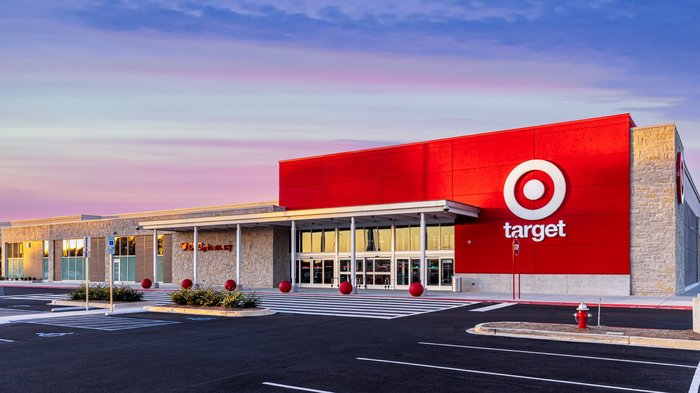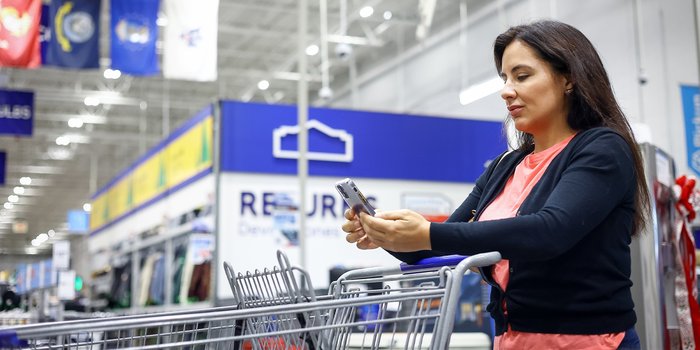Retailers see urgent need for sustainability, but lack direction

Carrie Tharp
Vice President, Global Solutions & Industries
Retail is a fast-paced, hyper-competitive industry with retailers battling tight margins, supply chain issues, rising prices and fast changing consumer demand. And if that wasn't enough, they feel the urgency to be more sustainable, and vocal about the good they are doing.
Today, we’re sharing new insights on how more than 500 retail executives polled in a recent survey of 1,491 industry executives across 16 countries are thinking about sustainability.
While sustainability is ranked as a higher priority for retailers than other industries, and retail leaders see the urgent need to be more eco-friendly, the industry lacks direction. Retailers are less likely to see technology as a way to move the needle on sustainability, pointing to a clear need for technology providers to do more to help.
Sustainability a rising priority for retailers
When compared to other industries like healthcare, financial services and supply chain, the retail sector arguably has a higher level of visibility with the average person. Most of us have near daily interaction with retail, buying our food, clothes, basic necessities and other goods from grocers, big box stores, apparel brands and more.
That higher level of visibility also means that the environmental footprint of retail is often under the microscope, from the sustainability of fashion and product packaging, to the complexity of resource-intensive supply chains.
A remarkable 71% of retail leaders surveyed indicated that they were prioritizing sustainability, compared to 64% of the global average of leaders across all industries — the highest score across all industries. But perhaps most interesting of all is how highly sustainability ranks among other priorities for retailers — it’s seen as more important than driving revenue, attracting talent and evolving business models — all in one of the most highly competitive, low-margin sectors of the economy.


But retailer’s sustainability efforts are falling short
Across all industry executives surveyed, retailers gave themselves the most sobering assessment of their own sustainability initiatives. For example, only 36% of retail executives confirm that they run a recycling program (compared to the global industry average of 42%.)
And despite the high priority retailers are now placing on sustainable practices, the retail executives surveyed indicate that they are the least likely to use technology to make their business practices more sustainable – from developing more eco-friendly products and measuring the impact of their sustainability efforts, to using digital technologies to transform their business operations.


Although retailers are struggling to utilize tech in their sustainability efforts, 93% of retail executives believe that technology can make it possible for their organization to be more sustainable. But the truth is that more than half of them (54%) simply don’t know where to start with regards to sustainability — considerably lower than the global average (65%).
So, what gives?
Technology companies need to speak retailers’ language better
Looking at the data and what technology is capable of doing for our environment today, it’s clear that retailers and technologists need to find a better way to work together.
It’s imperative that technology providers, including Google Cloud, show this critical sector how technology can tangibly and efficiently make a positive impact in their sustainability efforts without requiring a retailer to overhaul their operations.
Retail can be a tough business of hard trade-offs. I’ve personally seen and faced the challenges of making retail and consumer goods more sustainable while delivering on margin and growth.
But today, technology can make it possible for retailers to make decisions that are both good for their business and the planet. For example, Google Cloud customers like Urban Outfitter’s apparel rental business, Nuuly, show us how being cloud-first also means being sustainability-first.
For retailers looking to accelerate their journey, here are a few tips on how technology can help move the needle on sustainability and their day-to-day business at the same time:
Use data analytics to reduce waste through efficient inventory management and better demand forecasting: Creating products that won’t be used and expending resources on moving goods inefficiently isn’t just bad business, it’s bad for the environment. To make sure they’re creating the right goods and getting them to the right places at the right time, retailers can use Google Cloud’s Vertex AI forecasting capabilities to generate highly accurate forecasts of consumer demand and allocate inventory efficiency.
Cut down on emissions by maximizing delivery fleet efficiency: Delivery fleets can consume immense amounts of fuel, adding to a retailer’s environmental footprint. By leveraging smart analytics, retailers can greatly reduce this impact while still meeting rising consumer demands for fast shipping. Google Cloud’s Last Mile Fleet & Cloud Fleet Routing solution gives retailers an integrated suite of mapping, routing, and analytics capabilities that can help them and carriers not only meet consumer expectations, but also achieve sustainability targets by reducing the number of miles traveled and the number of carbon-emitting vehicles on the road.
Call on a clean cloud: Running operations in the cloud allows retailers to be more agile and makes it easier to meet the changing customer demands. However, not all clouds are equal — Google Cloud is the cleanest cloud in the industry and is carbon neutral in its operations, with a goal to run 24/7 on carbon-free energy at all of our data centers by 2030. We’ve also built a collection of tools that can help retailers accurately track their gross carbon emissions associated with their Google Cloud usage and take action to reduce their environmental footprint. For retailers, running on a clean cloud means doing good for both the planet, and their business.




